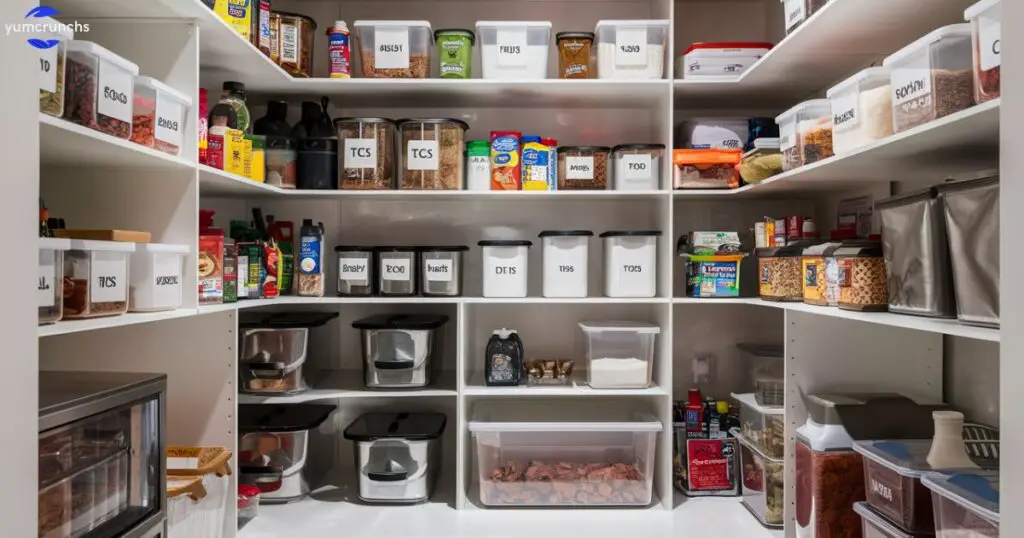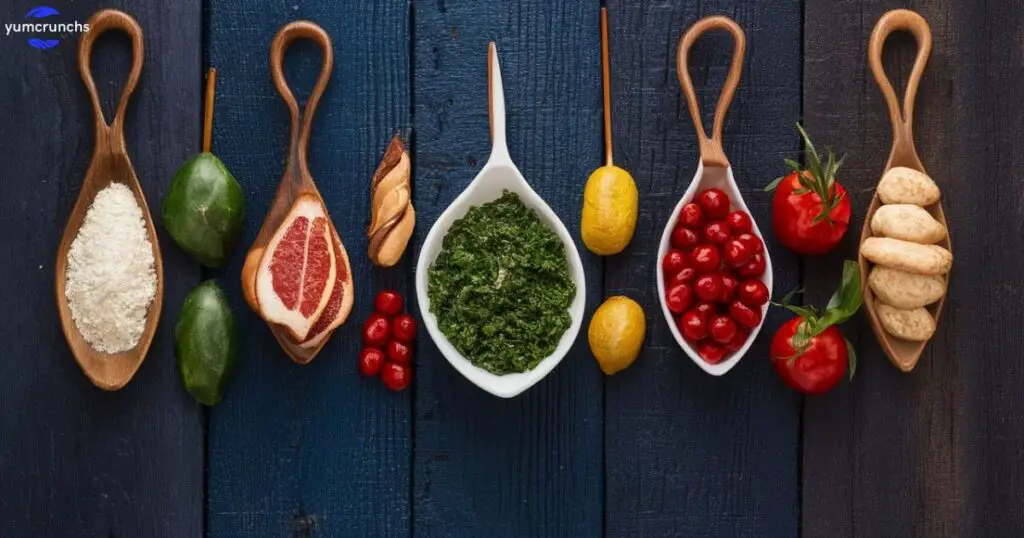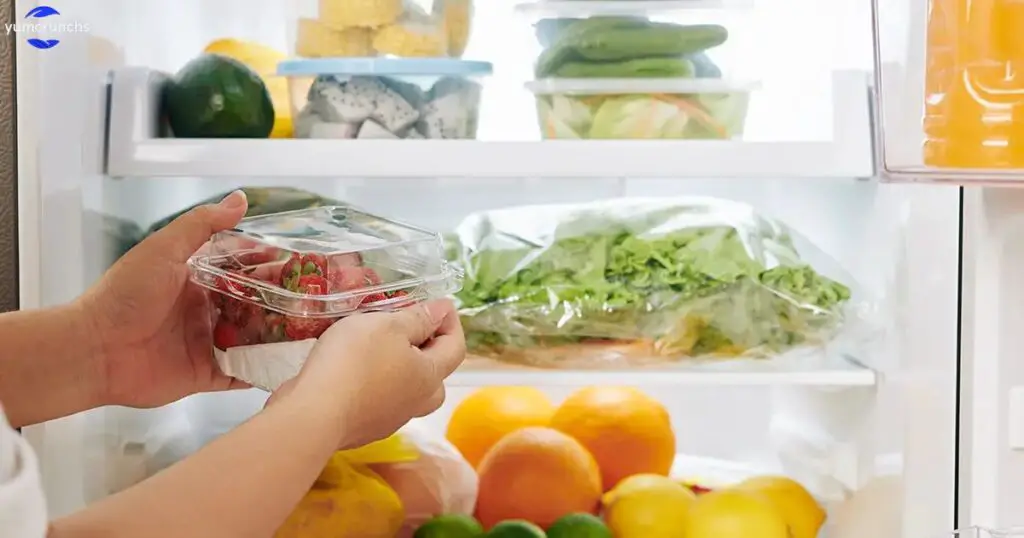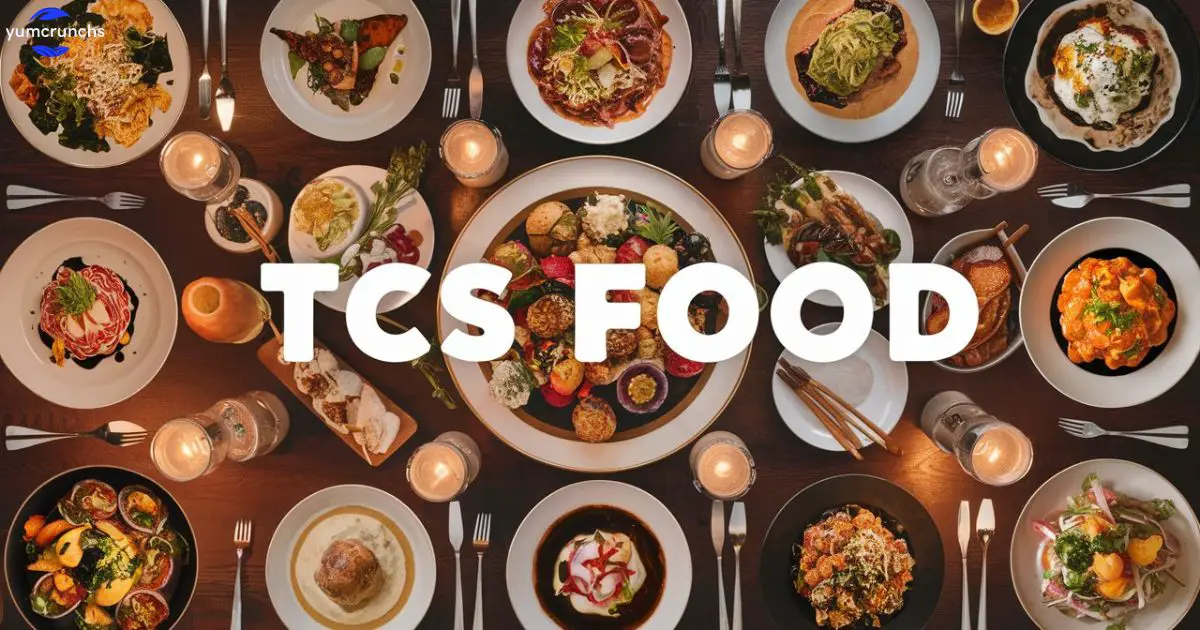TCS food, or Time/Temperature Control for Safety food, refers to any perishable food that requires specific temperature control to prevent the growth of harmful bacteria. This includes foods like meat, dairy products, cooked vegetables, and cooked grains.
Ever wondered why your favorite deli sandwich needs to be refrigerated? TCS food is prone to spoilage and can become a breeding ground for bacteria if not stored or handled correctly. But did you know that improper handling of TCS food doesn’t just affect taste but can also pose serious health risks?
To ensure food safety, it’s crucial to follow proper storage, cooking, and serving guidelines for TCS foods. From refrigerating leftovers promptly to cooking meat to the recommended internal temperatures, every step plays a role in keeping foodborne illnesses at bay. So, next time you’re prepping a meal, remember: when it comes to Temperature-sensitive food, temperature control is key to both taste and safety.
What does TCS mean in fast food?
TCS in fast food stands for “Total Customer Satisfaction.” It’s not a specific dish or ingredient, but rather a commitment by fast food restaurants to make sure customers are happy with their experience. This means everything from friendly service to tasty food and a clean environment. Fast food chains like McDonald’s and Burger King often emphasize TCS in their training programs for employees. They want to make sure that every customer leaves with a smile.
To achieve TCS, fast food restaurants focus on things like speed of service, accuracy of orders, and cleanliness of the restaurant. They may also offer promotions and discounts to encourage repeat business. Customer feedback is important too – many fast food chains have systems in place for customers to leave comments and suggestions. By paying attention to these details, fast food restaurants aim to keep customers coming back for more, keeping everyone happy and satisfied.
How should TCS food be stored?

1. Temperature Control:
TCS foods need to be stored at safe temperatures to prevent bacteria from growing and causing foodborne illnesses. Keep cold TCS foods below 41°F (5°C) and hot TCS foods above 135°F (57°C).
2. Storage Containers:
Store Temperature-sensitive food in clean, covered containers to protect them from contamination. Use food-grade storage containers made of materials like plastic or stainless steel.
3. Separation:
Store Temperature-sensitive food separately from raw foods, especially raw meat, poultry, and seafood, to prevent cross-contamination. Use separate storage areas or containers for raw and cooked foods.
4. Labeling:
Label Temperature-sensitive food with the date they were prepared or received, and use them within a safe timeframe. This helps you keep track of how long the food has been stored and when it needs to be used or discarded.
5. Storage Location:
Store TCS foods in designated areas of the refrigerator or freezer, such as on shelves or in drawers. Which Item Does Not Have a Food Contact Surface? Keep them away from areas where they might be exposed to raw foods or chemicals.
6. Air Circulation:
Ensure proper air circulation in the refrigerator or freezer by not overcrowding shelves or blocking vents. This helps maintain consistent temperatures and prevents cold spots where bacteria can grow.
7. Thawing:
If frozen TCS foods need to be thawed before use, do so in the refrigerator, under cold running water, or in the microwave. Avoid thawing at room temperature, as this can allow bacteria to multiply.
8. Monitoring:
Regularly monitor the temperature of refrigerators, freezers, and storage areas to ensure they stay within safe ranges. Use thermometers designed for food storage to accurately measure temperatures.
What is a TCS food example?

TCS stands for “Time/Temperature Control for Safety.” These are foods that need special attention because they can spoil or become unsafe if they’re not handled, cooked, or stored properly. Examples of TCS foods include:
Meat and poultry
This includes things like chicken, beef, pork, and turkey. These foods need to be cooked to the right temperature to kill harmful bacteria like salmonella and E. coli.
Eggs
Raw eggs can contain salmonella, so it’s important to cook them thoroughly before eating.
Dairy products
Milk, cheese, yogurt, and other dairy foods can spoil quickly if they’re not kept cold enough.
Seafood
Fish, shellfish, and other types of seafood need to be cooked properly to kill any bacteria or parasites that might be present.
Cooked rice and pasta
These foods can grow bacteria quickly if they’re left at room temperature for too long.
It’s important to handle TCS foods safely to prevent foodborne illness. This means washing your hands before and after handling food, cooking foods to the right temperature, and storing them at the proper temperature. Following these guidelines can help keep you and your family safe from foodborne illness.
Characteristics of TCS Food

Temperature-sensitive food stands for “Time and Temperature Control for Safety” food. It’s super important to know about TCS food because it can spoil easily and make you sick if not handled or stored properly. Here are some key characteristics you should know:
| Characteristic | Description |
| Temperature | Temperature-sensitive food should be stored at specific temperatures to prevent bacterial growth. |
| Storage Time | They have limited time for safe storage before they should be consumed or discarded. |
| Handling | Proper handling practices are necessary to avoid contamination and foodborne illness. |
| Hygiene | Maintaining cleanliness in preparation and serving areas is crucial. |
| Cooking Temperature | Cooking TCS foods to the correct internal temperature kills harmful bacteria. |
| Cooling | Rapid cooling of cooked TCS foods prevents bacteria from multiplying. |
Why It’s Important to Maintain TCS Food Safety?
Maintaining Temperature-sensitive food safety is super important to prevent people from getting sick. TCS foods, like meat and dairy, can become a playground for harmful bacteria if not handled properly. This can lead to foodborne illnesses, causing stomach problems and even more serious health issues. By storing and cooking TCS foods correctly, we can keep everyone safe and healthy.
Taking care of Temperature-sensitive food safety isn’t just following rules; it’s about looking out for people’s health. Whether you’re serving food at a restaurant or a family gathering, you’re responsible for keeping everyone safe. By practicing good food safety habits, like washing hands and storing food correctly, we show that we care about the well-being of others. Plus, when people know they can trust the food we serve, it builds trust and keeps them coming back for more!
How to Keep TCS Food Safe?

Keeping TCS (Time/Temperature Control for Safety) food safe is super important. Temperature-sensitive food are the ones that need to be handled and stored with extra care because they can spoil easily and make people sick if not handled properly. Whether you’re cooking at home or running a restaurant, here are some simple tips to keep TCS foods safe.
Temperature Control
Temperature-sensitive food needs to be kept at the right temperatures to stay safe. Keep cold foods cold (below 41°F or 5°C) and hot foods hot (above 135°F or 57°C). Use a fridge thermometer to check if your fridge is cold enough, and a food thermometer to make sure your hot foods are heated to the right temperature.
Cleanliness
Keep your hands and cooking surfaces clean to prevent spreading germs. Wash your hands with soap and water before handling food, and clean countertops, cutting boards, and utensils with hot, soapy water after each use. Also, don’t forget to wash fruits and veggies before eating or cooking them!
Separation
Keep raw meats, poultry, seafood, and eggs separate from ready-to-eat foods like fruits, veggies, and cooked foods. This helps prevent cross-contamination, where germs from raw foods can spread to other foods and make you sick.
Cooking and Reheating
Cook Temperature-sensitive food, especially meats, poultry, eggs, and fish, thoroughly to kill harmful bacteria. Use a food thermometer to make sure they reach a safe internal temperature. When reheating leftovers, make sure they reach 165°F (74°C) throughout to kill any bacteria that might have grown.
Storage
Store Temperature-sensitive food properly to keep them safe. Use airtight containers or wrap foods tightly to prevent contamination and keep them fresh. Label leftovers with the date so you know when to use them by, and follow the “first in, first out” rule to use older foods before newer ones.
By following these simple tips, you can keep Temperature-sensitive food safe and prevent foodborne illnesses. Remember, food safety is everyone’s responsibility, whether you’re cooking at home or serving food in a restaurant. So, stay clean, cook thoroughly, and store properly to keep yourself and others healthy and happy!
List of TCS Foods
TCS foods, or Time/Temperature Control for Safety foods, are those that need careful handling to avoid foodborne illnesses. These foods can quickly become unsafe if they’re not stored, handled, or cooked properly. Here’s a rundown of what you need to know about TCS foods:
Definition: Temperature-sensitive food includes a wide range of perishable items such as meat, poultry, fish, dairy products, eggs, cooked rice, cooked pasta, and cut fruits and vegetables. These foods provide an ideal environment for bacteria to grow if they’re not kept at the right temperature or if they’re left out for too long.
Safe Handling: Proper handling is crucial to prevent contamination and foodborne illnesses. This includes washing hands frequently, using separate cutting boards for raw meats and ready-to-eat foods, and avoiding cross-contamination by keeping raw and cooked foods separate.
Cooking: Cooking TCS foods to the right temperature kills harmful bacteria. For example, ground meat should be cooked to at least 160°F (71°C), poultry to 165°F (74°C), and fish to 145°F (63°C). Using a food thermometer is the most accurate way to ensure foods reach the correct temperature.
Storage: Storing TCS foods properly is essential for maintaining their safety and quality. Refrigerate perishable TCS foods promptly, ideally within two hours of cooking or purchasing. Store raw meats on the bottom shelf of the refrigerator to prevent drips onto other foods.
Common Examples: Some common Temperature-sensitive food you may encounter include:
- Raw and cooked meats (beef, pork, chicken)
- Seafood (fish, shellfish)
- Dairy products (milk, cheese, yogurt)
- Eggs and egg products
- Cooked grains (rice, pasta)
- Cut fruits and vegetables
Regulations: Many countries have regulations in place to ensure the safe handling of TCS foods. This includes guidelines for food establishments, food handlers, and consumers to follow to reduce the risk of foodborne illnesses.
Understanding TCS foods and how to handle them safely is essential for protecting yourself and others from foodborne illnesses. By following proper food safety practices, you can enjoy these foods while minimizing the risk of getting sick.
What is non-TCS Food?
Non-TCS food, short for non-time/temperature control for safety food, such as bread, whole fruits, crackers, and bottled drinks, doesn’t require strict temperature control to stay safe. For comprehensive guidance, explore Tips for Time and Temperature Control.
Non-TCS foods are safe to eat without worrying too much about temperature because they’re not great breeding grounds for bacteria. They’re often low in moisture or acidic, which makes it tough for bacteria to multiply. Just store them in clean spots and wash fruits and veggies before digging in to keep them safe and yummy. Understanding this helps us handle food better and avoid getting sick from it.
FAQ’s
Is bread a TCS food
Yes, bread is considered a TCS (Time/Temperature Control for Safety) food.
Is potato salad a TCS food
Yes, potato salad is considered a TCS (Time/Temperature Control for Safety) food.
Is cooked rice a TCS food
Yes, cooked rice is considered a TCS (Time/Temperature Control for Safety) food.
Conclusion
Understanding TCS food is vital in the food industry. TCS, or Time/Temperature Control for Safety, covers perishable foods needing precise handling to prevent bacterial growth. From dairy to meats, TCS items demand careful attention to temperature and time for safe consumption. This awareness benefits both food handlers and consumers, empowering informed choices.
Grasping TCS food’s significance underscores proper food safety measures. Maintaining correct temperatures and ensuring thorough cooking are crucial steps in preventing foodborne illnesses. Integrating these insights into daily routines fosters a healthier and safer food environment for all.

Daniel, a seasoned author with 8 years of expertise in SEO, brings a delectable blend of culinary flair and digital finesse to the food niche on his website.











